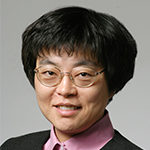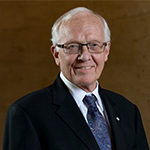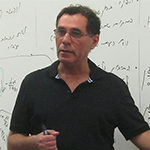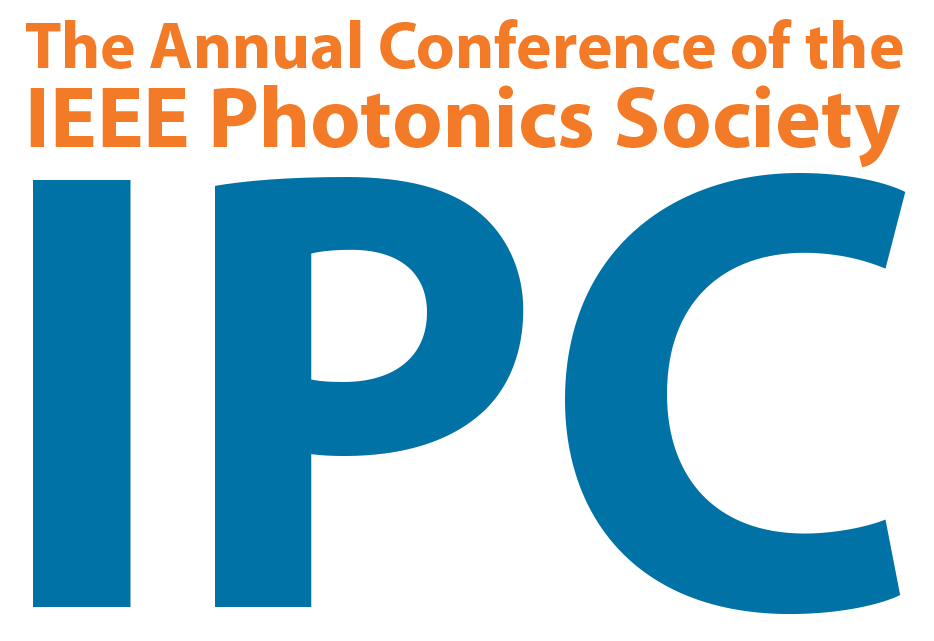Plenary Speakers

Connie Chang-Hasnain
University of California, Berkeley, USA
Title: VCSEL Array for 3D Sensing
Connie Chang-Hasnain Bio:
Connie Chang-Hasnain
University of California, Berkeley, USA
Biography:
Connie Chang-Hasnain is Whinnery Distinguished Chair Professor in Electrical Engineering and Computer Sciences, at the University of California, Berkeley. She was the Associate Dean for Strategic Alliances of College of Engineering since 2014-2019 and Chair of the Nanoscale Science and Engineering Graduate Group at UC Berkeley 2006-2017. Prior to joining the Berkeley faculty, Dr. Chang-Hasnain was a member of the technical staff at Bellcore (1987–1992) and Assistant Professor of Electrical Engineering at Stanford University (1992–1995). She is a fellow of IEEE, OSA and National Academy of Inventors. She is member of the US National Academy of Inventors and National Academy of Engineering.
Professor Chang-Hasnain’s research interests include semiconductor optoelectronic devices, materials and applications. She pioneered the first planar VCSEL structure using proton implantation for array fabrication with Gbps modulation, first MEMS-VCSEL for wavelegnth tuning, and the first 1000-elecment VCSEL arrays for 3D imaging. Prof. Chang-Hasnain has been honored with many awards including the Okawa Prize (2018), UNESCO Medal For the Development of Nanoscience and Nanotechnologies (2015), IEEE David Sarnoff Award (2011), and the OSA Nick Holonyak Jr. Award (2007). Additionally, she has been awarded with a Vannevar Bush Faculty Fellowship, a Humboldt Research Award, and a Guggenheim Fellowship. She was a member of IEEE LEOS Board of Governors, OSA Board of Directors, and the Board on Assessment of NIST Programs, National Research Council. She was the Editor-in-Chief of Journal of Lightwave Technology 2007-2012. Professor Chang-Hasnain is the OSA President-Elect in 2020 and will be the President in 2021.

Paul Corkum
University of Ottawa, Canada
Title: Using light to control electrons that, in turn, create new light
Paul Corkum Bio:
P. B. Corkum
Joint Attosecond Science Lab
University of Ottawa and National Research Council of Canada
Room 464, Advanced Research Complex, University of Ottawa
Ottawa, Ontario, Canada
Short Biography: Dr. Corkum is the National Research Council’s Canada Research Chair of Attosecond Photonics and Director of the Joint Attosecond Science laboratory, linking research at the University of Ottawa and the National Research Council of Canada.
Dr. Corkum is a fellow of the Royal Societies of Canada and London; a foreign member of the US, the Austrian and the Russian Academy of Science. In 2013, he was awarded Saudi Arabia’s King Faisal Prize for science and Israel’s Harvey Prize for physics. In 2014 he was named “Thompson Reuters Citation Laureate for work that is of Nobel class and likely to earn the Nobel someday”. In 2018 he received the SPIE Gold medal and the IOP’s Newton Medal, both societies’ highest awards.

Chris Koeppen
II-VI Incorporated, USA
Title: Light Matters – Photons, Photons, Everywhere
Christopher S. Koeppen Bio:
Christopher S. Koeppen
Chief Technology Officer, II-VI Incorporated
Dr. Koeppen joined II-VI in 2011 via the acquisition of Aegis Lightwave, Inc., where he served as General Manager, Aegis-NJ. He was named General Manager of II-VI’s Agile Network Products Division in 2012 and Director of Corporate Strategic Technology Planning in 2015. He then served as Vice President of the Industrial Laser Group and Corporate Strategic Technology Planning from 2017 until his appointment as Chief Technology Officer in 2019. Previously, Dr. Koeppen was co-founder and CEO of CardinalPoint Optics, prior to its acquisition by Aegis Lightwave. He has more than two decades of progressively increasing general and technology management experience in high-tech companies, including at Meriton Networks, Mahi Networks, Photuris, and Lucent Technologies. Dr. Koeppen holds a Ph.D. in Physics from the University of Pennsylvania, where he was an AT&T Bell Laboratories Scholar, and B.S. degrees in Physics and Mathematics from the Pennsylvania State University, where he was a Schreyer Scholar and an Evan Pugh Scholar.

Mordechai Segev
Technion – Israel Institute of Technology
Title: Topological Photonics
Mordechai Segev Bio:
Mordechai (Moti) Segev
The Robert J. Shillman Distinguished Professor of Physics
Physics Department and Solid State Institute
Technion, Israel Institute of Technology
Short Biography:
Moti Segev is the Robert J. Shillman Distinguished Professor of Physics, at the Technion, Israel. He received his BSc and PhD from the Technion in 1985 and 1990. After postdoc at Caltech, he joined Princeton as Assistant Professor (1994), becoming Associate Professor in 1997, and Professor in 1999. Subsequently, Moti went back to Israel, and in 2009 was appointed as Distinguished Professor.
Moti’s interests are mainly in nonlinear optics, photonics, solitons, sub-wavelength imaging, lasers, quantum simulators and quantum electronics, although he finds entertainment in more demanding fields such as basketball and hiking. He has won numerous international awards, among them the 2007 Quantum Electronics Prize of the European Physics Society, the 2009 Max Born Award of the Optical Society of America, and the 2014 Arthur Schawlow Prize of the American Physical Society, which are the highest professional awards of the three scientific societies. In 2011, he was elected to the Israel Academy of Sciences and Humanities, and in 2015 he was elected to the National Academy of Science (NAS) of the United States of America. In 2014 Moti Segev won the Israel Prize in Physics and Chemistry (highest honor in Israel) and in 2019 he has won the EMET Prize (Israel).
However, above all his personal achievements, he takes pride in the success of his graduate students and postdocs, among them are currently 21 professors in the USA, Germany, Taiwan, Croatia, Italy, India and Israel, and many holding senior R&D positions in the industry.
